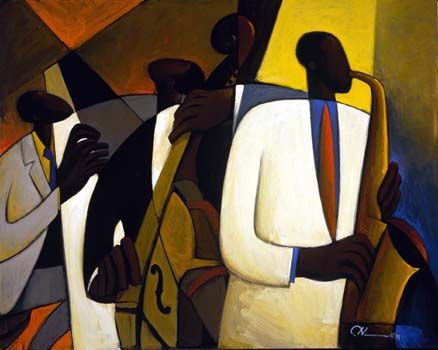The Black Presence In American Popular Song
LENA HORNE(1917-2010)
BILLIE HOLIDAY(1915-1959)
NAT KING COLE(1916-1965)
FATS WALLER(1904-1943)

It is no coincidence that two ethnic groups with long, parallel histories of hardship and oppression emerged simultaneously in twentieth century America to create what we know as the Golden Age of Popular Song. American music as we know it would barely exist without the contributions of Jews and Blacks, one group a newly arrived people fleeing centuries of pogroms and persecution, the other only decades out of the nightmare of slavery.
For black slaves, singing was not a refined amusement but survival and life itself, however limited and painful that life might be. Not surprisingly, after slavery’s demise, the musical expression of the experience-Spirituals, Blues, Jazz- would become Black Americans´ most compelling weapon in their hard-fought battle for equality and full assimilation into the mainstream. While many of the more “respectable” professions remained out of reach in those days, entertainment was immediately open to anyone with talent, and musical genius lay waiting in vast storehouses among the Black American community.
Part One of Lectures-in-Song: “HARLEM RENAISSANCE”examines the careers [and songs] of Ziegfeld star Bert Williams, poignant singer/actress Ethel Waters, ragtime wonder Eubie Blake, elegant composer & bandleader Duke Ellington, dancing wizard Bill “Bojangles” Robinson, and the swinging, singing Cab Calloway.
Part Two of “HARLEM RENAISSANCE” includes a look at glamorous singer/actress Lena Horne, troubled jazz pioneer Billie Holiday, crooning phenomenon and multimedia star Nat King Cole, and composer/piano personality Fats Waller.
Throughout the first half of the twentieth century, the undeniable presence of these great Black musical stars enriched and enlivened the American cultural scene while directly contributing to the movement toward full equality that would come later.
If you would like to engage Fred Miller for one of his Lectures-in-Song, please contact him directly at any time. For a full listing of all Lectures, click here.
Fred Miller’s Lectures-In-Song comprise a series of solo programs, each an historical, anecdotal and musical profile of some great personality or important aspect of American Popular Song. These Lectures are delivered by singer/pianist/narrator Miller at the piano, and each reflects his lifetime passion and appreciation for great music. He studied classical piano in his hometown of Albuquerque from ages 7-15 but early on gave up any notion of music as a profession. At that time, Fred assumed a musical career was either one devoted to the rigid discipline of classical music or being a freewheeling rock star, and he accurately decided he had no aptitude for either. However, at age 22, upon hearing Ella Fitzgerald sing Cole Porter, he found his calling and life’s mission.
Through the Seventies and Eighties, Miller studied and absorbed in minute detail the life and times and songs of nearly all the great American composers and lyricists who thrived during Broadway & Hollywood’s Golden Age between the two World Wars. In 1987, he founded Silver Dollar Productions in order to produce operettas, dramas, musicals and small cabarets. Silver Dollar Productions required ensemble casts, props, costumes and, most significantly, the challenges of publicity and selling tickets, and for a dozen busy years, the company presented an unbroken string of varied and highly lauded performances.
In 1999, Miller was simultaneously underwritten by both his local Hunterdon County Library and the Art Alliance of Philadelphia to present a series of six solo Lectures-In-Song, each devoted to one of the premiere Broadway/Hollywood songwriters: George Gershwin, Cole Porter, Irving Berlin, Richard Rodgers, Jerome Kern, and Harold Arlen.
In presenting history, biography and psychology while sitting at a piano singing the superlative songs of his heroes, Miller has found a single performing medium that utilizes most of his intellectual and musical passions.The list of Lectures-In-Song that began with six in 1999 is now more than seventy(and growing!), a joyful tribute to the boundlessly rich field of American Popular Song.
